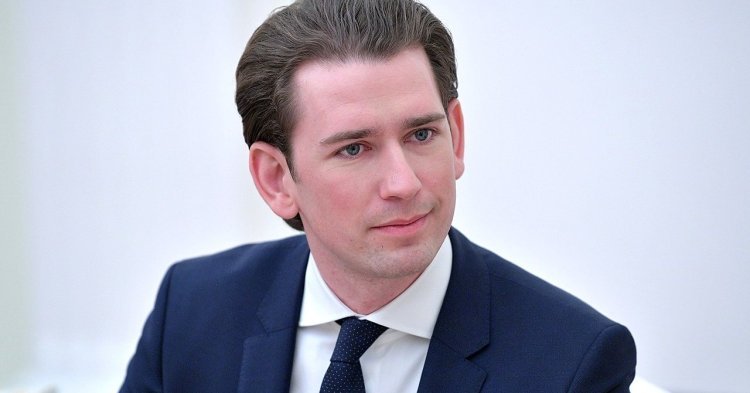On October 26, felix Austria celebrated its national day, commemorating the departure of the occupational forces in 1955. The dictum of ‘lucky’ or ‘happy’ Austria dates back to imperial times, however, and is most famous for referring to the Habsburgs’ marriage policy, which helped establish them as one of Europe’s most powerful dynasties. “Tu felix Austria nube” – you, happy Austria, marry! But finding a partner isn’t always that easy. And so it happens that the country is still run by a caretaker government with no end in sight. The results of September’s snap elections, called after a governmental crisis shook the country, leave several options on the table.
Back to the roots: the Ibiza scandal
The 2017 national elections resulted in a center-right government led by the young chancellor Sebastian Kurz, who had taken over the conservative Austrian People‘s Party a few months earlier and broken with the Social Democrats. Kurz formed a coalition with the nationalist Freedom Party (FPÖ), their proclaimed reform path enjoyed high approval ratings in the months to come.
And then: Ibiza. The island has become an allegory for the scandal that happened one and a half years later. Two German newspapers released a video showing leading FPÖ politicians plotting to take over Austria’s biggest newspaper ahead of the national elections with the help of a Russian oligarch. Once in government, they would reward him with major infrastructure projects. The following day, thousands of people took to the street to call for snap elections – and so it happened.
Campaign mode: ongoing... and turbulent
The release took place one week before the EU elections which saw the FPÖ plunging from 26% in the 2017 parliamentary elections to 17%. No time for a breather however: after one campaign concluded, parties had to keep their apparatuses running to get the next one going. The Greens enjoyed momentum thanks to the ‘Fridays for Future’ movement. Social Democrats –like elsewhere in Europe– were mainly lost in a leadership debate and trying to find a purpose. Kurz tried to nudge as many right-wing voters onto his side, leaving space for Liberals in the center.
The FPÖ, on its part, was eager to credibly emphasize its renewal by ridding itself of anything or anyone unpleasant and openly touted for the continuation of the coalition. For a long time, this strategy appeared to be successful: very few expected Kurz not to form a second “Ibiza Coalition”, establishing a coalition with the Greens and the liberal NEOS (Renew Europe). But all attempts were rendered void when yet another scandal –this time about party finances– shook the nationalist camp. Among other things, such as the misuse of public funds for private purposes, former chairman Strache‘s wife had been employed by the party for a monthly salary of about 9,500 euros. The issue there: Philippa Strache was on the electoral list and about to be elected MP for the Freedom Party, something which seemed to be the result of a backroom deal. HC Strache, notwithstanding his involvement in Ibiza, had gathered enough preferential votes for a seat in the European Parliament even though it was just a solidarity candidacy at the end of the electoral list. Since the party wanted to credibly distance itself from its past leader, they offered his wife a “silent seat” in parliament.
Unexpected results, tough negotiations
Many FPÖ voters were demobilized or switched to Kurz, who had moved his party to the right and emerged as the clear winner of September’s elections at 37%. Social Democrats secured a weak second place at 21%. The Freedom Party stagnated at 16% (compared to the EU elections), while the Greens scored a fulminant 14%.
FPÖ leaders soon declared they did not get a mandate to enter negotiations while Social Democrats and the People’s Party seem irreconcilable, paving the way for talks between Kurz and the Greens. Due to their wide political differences, it has been suggested that, despite there being no need for their seats, the centrist NEOS could be included as a mediator of sorts. Exploratory talks between these potential partners are still ongoing and will conclude on November 8. The decision whether to commence actual coalition negotiations or not will likely be taken shortly after.
There is only a handful of examples of governments comprising Conservatives and Greens in Europe’s recent history (Czechia, Ireland, Finland), and it would definitely be a novum for Austria. Such alliances have been tested at the regional level and worked pretty well but in the wake of Kurz’s shift to the right, many Greens –especially the left-wing party base in Vienna where they govern with the Social Democrats– are highly skeptical.
Many analysts are reminded of the early 2000s when ex-chancellor and Kurz mentor Wolfgang Schüssel entered coalition talks with the Greens after emerging as the clear winner of the 2002 snap elections. Their differences were so irreconcilable, however, that he eventually opted to continue governing with a weakened FPÖ. The situation might well recur in 2019: the FPÖ leadership already backtracked and is suddenly not opposed to enter negotiations anymore if talks with the Greens fail.
A decisive choice for Austria and Europe alike
Meanwhile, Austria’s interim government, which was installed after FPÖ and Social Democrats ousted Kurz in a vote of no confidence (a first in the republic’s history!), re-nominated long-term commissioner Johannes Hahn, who will soon be in charge of the EU’s budget. Although this is hardly a daring decision, it is nevertheless an understandable one, given the government’s decidedly unpolitical self-conception and Hahn’s merits on the European stage. The Conservative is considered more moderate than MEP Karoline Edtstadler, who was said to become Austria’s nominee and who, as state secretary, defended her government’s strict stance on migration during last year’s Council presidency. As candidate in the EU elections, she often thwarted her own national Spitzenkandidat’s pro-European campaign. In sum, Hahn’s re-nomination will likely mean fewer disruptions on the Austrian part.
Indeed, Austria is at crossroads. The ‘Ibiza Coalition’ –as the ousted government has been dubbed– undoubtedly moved the alpine republic towards Visegrád. Should negotiations with the unconditionally pro-European Greens successfully conclude, this path can be reverted – even more so if the openly federalist NEOS are part of such a government.
Not only would such an alliance signify a general setback for populist parties across Europe –the FPÖ was one of the most successful ones after all– it would also give environmental and climate issues the attention they deserve, potentially making Austria one of the fiercest supporters of incoming President von der Leyen’s European Green Deal. The final outcome of the negotiations will thus be decisive not only for Austria, but also for Europe as a whole: Austria could shift from being a reluctant country to becoming a constructive partner. Who knows, we might soon speak of felix Europa.


Follow the comments: |
|
